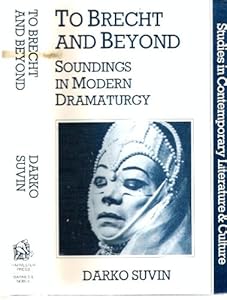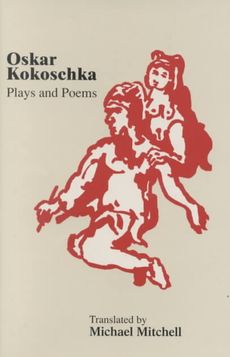Darko Suvin: To Brecht and Beyond: Soundings in Modern Dramaturgy (1984)
Filed under book | Tags: · aesthetics, drama, performance, theatre

In this collection of nine essays written between 1967 and 1977, Darko Suvin discerns the shape of a post-Individualist drama which may be to our age what the theatre of Shakespeare and Ibsen was to theirs. Suvin establishes the principles of composition of a crucial group of modern plays.
He examines some major attempts and failures to replace Ibsen’s “Individualist” theatre with the “Collectivist” drama. Two particularly important and original contributions to the subject are Suvin’s chapters on the Happenings in the United States and on the Paris Commune Theatre Law. The book focuses on the work of Brecht, both because of the importance of his plays and because of what Professor Suvin sees as Brecht’s central position today in any cultural critique that refuses to despair.
Publisher Harvester, Sussex, 1984
ISBN 0855279753, 9780855279752
283 pages
PDF (140 MB, no OCR)
See also Suvin’s The Use-Value of Dying (1996)
Oskar Kokoschka: Plays and Poems (1973/2001)
Filed under book | Tags: · drama, expressionism, poetry, theatre

The well-known painter, Oskar Kokoschka, also produced a considerable and significant body of literary work: plays, a few poems, essays and autobiographical stories. The present volume contains all his plays (some in more than one version) and the poems, plus one short prose passage.
All the pieces in this collection, apart from the play Comenius, were written in the period 1907-1918. The plays, despite Kokoschka’s dislike of the term, reflect the style of Expressionism current in Germany during the period. Indeed, the early ones anticipated and, to as certain extent, helped to define Expressionism. The titles of some – Job, The Burning Bush, Orpheus and Eurydice – reflect the use of the mythic mode. Comenius, which was started in the 1930s and only completed in 1972, is a large-scale historical panorama, focusing on the figure of the Czech humanist and educational reformer, Jan Amos Komenský. Comenius’ fate reflects Kokoschka’s own experience of an increasingly dark world of conflict and oppression. His ideal of a humanity guided by the light of reason cannot find realization amid the strife and carnage of the Thirty Years’ War; at the end of the play it is reduced to a tiny spot of light in Rembrandt’s picture The Night Watch. The Burning Bush, Orpheus and Eurydice and Comenius appear in English translation for the first time.
Originally published as Das schriftliche Werk, Hans Christians, Vienna, 1973-76
Translated by Michael Mitchell
Afterword by Karl Leydecker
Publisher Ariadne Press, Riverside, California, 2001
Studies in Austrian Literature, Culture, and Thought Translation series
ISBN 1572410418, 9781572410411
250 pages
PDF (no OCR)
Comment (0)Lizbeth Goodman, Jane de Gay (eds.): The Routledge Reader in Politics and Performance (2000)
Filed under book | Tags: · avant-garde, dance, drama, performance, politics, theatre

“The Routledge Reader in Politics and Performance brings together for the first time a comprehensive collection of extracts from key writings on politics, ideology, and performance.
Taking an interdisciplinary approach to the subject, and including new writings from leading scholars, the book provides material on:
* post-coloniality and performance theory and practice
* critical theories and performance
* intercultural perspectives
* power, politics and the theatre
* sexuality in performance
* live arts and the media
* theatre games.”
Publisher Routledge, 2000
Performance Studies series
ISBN 0415174732, 9780415174732
322 pages
PDF (updated on 2016-12-23)
Comment (0)
